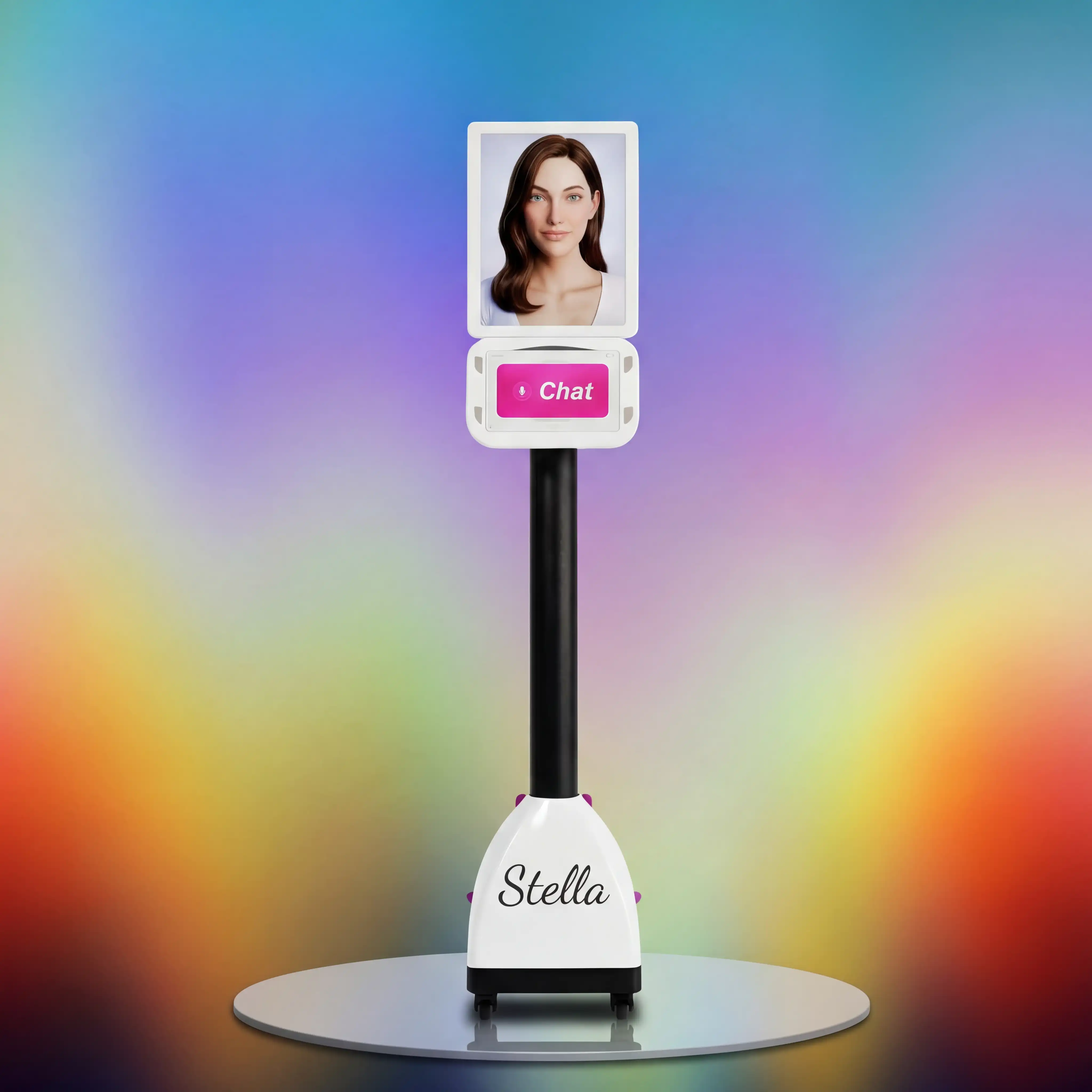So, You're Opening a Store! Congratulations... Now for the Fun Part: The Lease.
You did it. You found the perfect location, the one with foot traffic that dreams are made of and windows practically begging for a gorgeous display. You can already picture the grand opening, the happy customers, the satisfying *cha-ching* of the cash register. It’s all coming together. And then, a wild document appears: the commercial lease. It’s 70 pages long, printed in a font designed for ants, and written in a dialect of English that seems to exist only to make lawyers feel important.
Suddenly, the dream feels a bit like an impending final exam you forgot to study for. Fear not, brave retailer. Signing a commercial lease is a rite of passage. It’s the business equivalent of assembling IKEA furniture without the instructions. It’s confusing, occasionally infuriating, but ultimately achievable. Getting it right is crucial; a bad lease can slowly bleed your business dry, while a good one sets a stable foundation for growth. This guide will help you decipher the jargon, dodge the common pitfalls, and sign on that dotted line with confidence (or at least, with a significantly reduced sense of impending doom).
Decoding the Lease Agreement (Before You Sign on the Dotted Line)
Think of your lease as the rulebook for your relationship with your landlord. Before you commit to a multi-year partnership, you should probably read the rules. The most important thing to remember is that the first draft of the lease is just that—a draft. It’s a landlord’s wish list, and you’re not obligated to grant every single wish. Negotiation is not just expected; it’s essential.
The "Rent" Isn't Just the Rent: Understanding Lease Types
You’d think "rent" would be a simple number, but oh, you sweet summer child. Commercial leases have more pricing models than a budget airline. The most common you'll encounter are:
- Gross Lease: This is the simplest. You pay one flat fee, and the landlord covers taxes, insurance, and maintenance. It's predictable, but often more expensive upfront because the landlord is baking those costs in with a hefty buffer.
- Net Lease: This is where things get... interesting. You pay a lower base rent, plus some or all of the "operating costs." These are often called CAM charges (Common Area Maintenance).
- Single Net (N): You pay base rent + property taxes.
- Double Net (NN): You pay base rent + property taxes + property insurance.
- Triple Net (NNN): You pay base rent + property taxes + property insurance + all common area maintenance costs. This is the most common type for retail. It's like paying for your meal and then getting a separate bill for the electricity used to cook it, a portion of the chef's salary, and the soap in the restroom. NNN leases offer lower base rent but can come with unpredictable, soaring CAM charges.
- Percentage Rent: Common in malls, you pay a base rent plus a percentage of your gross sales over a certain threshold. It means the landlord is invested in your success, but it also means they get a slice of your pie when you do well.
The Devil's in the Details: Clauses You Can't Afford to Ignore
Reading a lease can feel like wading through mud, but certain clauses are buried treasure—or buried landmines. Pay close attention to these:
The "Use" Clause: This section dictates exactly what you can do in your space. If you're opening a bookstore, it will say you can sell books. But what if you want to add a small coffee bar in a year? If your Use Clause is too narrow, you're out of luck. Keep it as broad as possible to allow for future flexibility.
The "Exclusivity" Clause: This is your secret weapon. An exclusivity clause prevents your landlord from leasing space in the same center to a direct competitor. If you run a specialty cupcake shop, this ensures a mega-chain bakery can't open up two doors down. If the landlord won't give you one, that's a major red flag.
Term and Renewal Options: The "Term" is the length of the lease. Landlords love long terms (5-10 years) for stability. As a new owner, you might want a shorter term (2-3 years) with renewal options. This gives you an exit strategy if the location doesn't work out, and the power to stay if it does. Make sure the terms for renewal (including rent increases) are clearly defined.
The Art of the Ask: Negotiating Your Way to a Better Deal
Your future landlord is not a benevolent overlord bestowing a gift upon you. They are a business partner, and this is a business transaction. So, negotiate! Here are a few things to ask for:
- Rent Abatement: This is a period of free rent at the beginning of your lease, typically 1-3 months, to give you time to build out your store, stock shelves, and set up operations before you have to start paying.
- Tenant Improvement (TI) Allowance: This is money from the landlord to help you pay for renovations. It's usually quoted as a per-square-foot amount. It likely won't cover everything, but every dollar helps.
- Cap on CAM Charges: If you're in an NNN lease, negotiate a cap on how much your CAM charges can increase each year. This protects you from a sudden, massive bill for a new roof you don't even own.
- Personal Guarantee: Landlords often ask new business owners to personally guarantee the lease, meaning if the business fails, you're on the hook for the rent. Try to limit the guarantee to a specific time period (e.g., the first two years) or a dollar amount.
Maximizing Your Space (Without Maximizing Your Headaches)
Once the lease is signed, the fun of turning an empty box into your beautiful store begins. But the lease still governs what you can do. Getting approvals for renovations and managing a build-out while also trying to hire staff and order inventory can stretch any new owner to their absolute limit. You need to focus on getting the doors open and making money, not worrying about every little operational detail.
From Blueprint to Grand Opening
That Tenant Improvement allowance you negotiated? It will disappear faster than free samples on a Saturday. Be realistic about costs and timelines. While you’re managing contractors and permits, you also need a plan for how you'll manage customers from day one. This is where you can be smart about your resources. Instead of pulling your brand-new (and very busy) human staff away from the cash wrap to answer basic questions, you can automate the front of the store. A friendly in-store assistant like Stella can greet every customer, announce your grand opening promotions, and answer questions about store hours or return policies. This ensures no shopper feels ignored, even when you and your team are swamped with the beautiful chaos of a new store launch.
Post-Signature Survival Guide
The landlord-tenant relationship doesn’t end when you get the keys. In fact, it’s just beginning. Staying on top of your lease obligations and understanding your rights will make for a much smoother, more profitable tenancy.
Maintaining a (Mostly) Peaceful Coexistence with Your Landlord
This is simpler than it sounds. Pay your rent on time. Communicate maintenance issues clearly and in writing (email creates a paper trail). And read the "Rules and Regulations" section of your lease, which is often a separate document. It’ll outline the nitty-gritty details, like where your employees can park, rules about signage, and whether you’re allowed to host a heavy metal concert in your store on a Tuesday (you’re probably not).
The CAM Charge Conundrum: Auditing Your Expenses
If you signed an NNN lease, you'll receive an annual "reconciliation" bill. This is where the landlord settles up the estimated CAM charges you've been paying all year with the actual costs. Read it carefully. You have the right to audit these charges, and you should. Landlords and property managers are human; they make mistakes. Look for unreasonable administrative fees, charges for capital improvements that should be the landlord's responsibility, and any other "creative" accounting. A quick review could save you thousands.
Planning Your Escape (or Renewal): The End-of-Lease Game Plan
The end of your lease term can sneak up on you. Most leases require you to give notice of your intent to renew 6-12 months *before* the lease expires. If you miss this window, you could lose your right to renew. Mark your calendar. Set 15 reminders. Start thinking about your next move at least 18 months out. This gives you time to assess the market, find other potential locations, and negotiate with your current landlord from a position of strength, not desperation. And don't forget the "Surrender" clause, which details the condition you must leave the space in. It often requires you to remove all your fixtures and return it to an empty shell, which is an easily forgotten and costly final step.
A Quick Reminder About Stella
While you're mastering the art of commercial real estate, don't lose sight of the customer experience that will actually pay the rent. An AI retail assistant like Stella helps maximize your new space's potential by engaging every shopper, promoting key products, and giving your team the freedom to provide amazing service. She's the most reliable employee you'll ever have.
Conclusion: You've Got This
Navigating your first commercial lease is a formidable task, but it’s not an impossible one. The process is a crash course in business, negotiation, and the surprising importance of HVAC systems. Remember that a lease is a partnership, and you have the power to shape the terms of that partnership before you sign.
Your action plan is simple:
- Get a Pro: Never, ever, ever sign a lease without having a lawyer who specializes in commercial real estate review it. This is not the place to save a few bucks.
- Know Your True Cost: Look beyond the base rent. Understand the total financial obligation, including CAMs, utilities, and insurance, to create an accurate budget.
- Negotiate with Confidence: From free rent to renewal options, almost everything is on the table. Ask for what you want and need to make your business a success.
Now, take a deep breath, grab a red pen, and get ready to turn that intimidating legal document into the foundation of your thriving retail empire. Good luck.





















